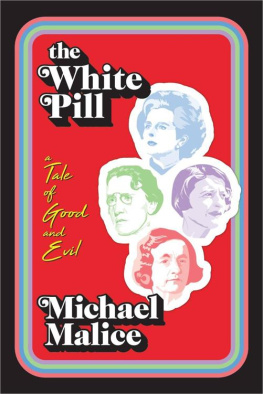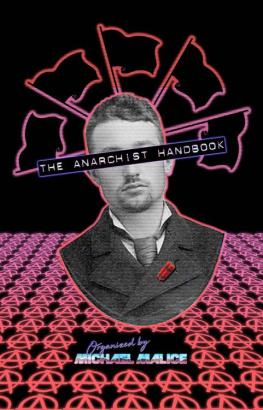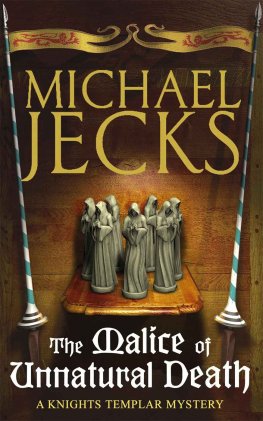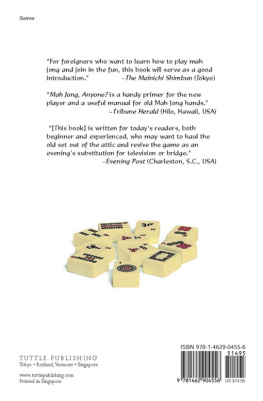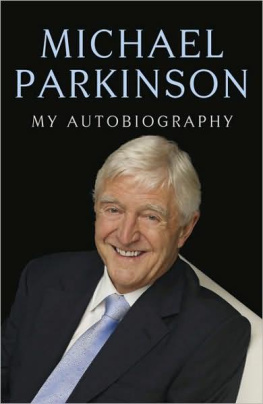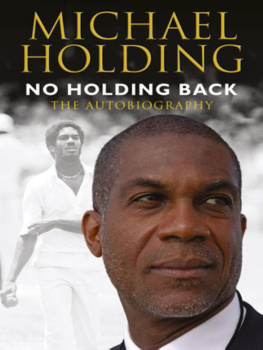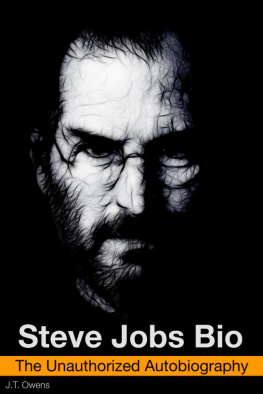Michael Malice - Dear Reader: The Unauthorized Autobiography of Kim Jong Il
Here you can read online Michael Malice - Dear Reader: The Unauthorized Autobiography of Kim Jong Il full text of the book (entire story) in english for free. Download pdf and epub, get meaning, cover and reviews about this ebook. year: 2014, publisher: CreateSpace, genre: Art. Description of the work, (preface) as well as reviews are available. Best literature library LitArk.com created for fans of good reading and offers a wide selection of genres:
Romance novel
Science fiction
Adventure
Detective
Science
History
Home and family
Prose
Art
Politics
Computer
Non-fiction
Religion
Business
Children
Humor
Choose a favorite category and find really read worthwhile books. Enjoy immersion in the world of imagination, feel the emotions of the characters or learn something new for yourself, make an fascinating discovery.

- Book:Dear Reader: The Unauthorized Autobiography of Kim Jong Il
- Author:
- Publisher:CreateSpace
- Genre:
- Year:2014
- Rating:4 / 5
- Favourites:Add to favourites
- Your mark:
- 80
- 1
- 2
- 3
- 4
- 5
Dear Reader: The Unauthorized Autobiography of Kim Jong Il: summary, description and annotation
We offer to read an annotation, description, summary or preface (depends on what the author of the book "Dear Reader: The Unauthorized Autobiography of Kim Jong Il" wrote himself). If you haven't found the necessary information about the book — write in the comments, we will try to find it.
Dear Reader: The Unauthorized Autobiography of Kim Jong Il — read online for free the complete book (whole text) full work
Below is the text of the book, divided by pages. System saving the place of the last page read, allows you to conveniently read the book "Dear Reader: The Unauthorized Autobiography of Kim Jong Il" online for free, without having to search again every time where you left off. Put a bookmark, and you can go to the page where you finished reading at any time.
Font size:
Interval:
Bookmark:
ALSO BY MICHAEL MALICE
Ego & Hubris: The Michael Malice Story (with Harvey Pekar)
Made in America (with Matt Hughes)
Concierge Confidential (with Michael Fazio)
I Want You to Shut the F#ck Up (with D. L. Hughley)
DEAR READER
DEAR READER
THE UNAUTHORIZED
AUTOBIOGRAPHY OF
KIM JONG IL
MICHAEL MALICE
When the word leader, or leadership, returns to current use, it connotes a relapse into barbarism. For a civilized people, it is the most ominous word in any language.
Isabel Paterson, 1943
Dear Reader: The Unauthorized Autobiography of Kim Jong Il Michael Malice
Publisher information Copyright information Cataloging information ISBN-10 1234567890 ISBN-13 9781234567890
Table of Contents
Korea is Lost
I remember the day that I was born perfectly.
Over the northernmost part of Korea towers Mt. Paektu. Its majesty has fascinated mankind for centuries. The mountains around Mt. Paektu are covered with whitish pumice stone, giving them a snow-capped appearance even in summer. Mt. Paektu itself is topped not by a peak but by Lake Chon, enormous and mysterious. Though many artists have captured Mt. Paektus solemn and noble image, none have been able to communicate its soul. When the sun rises on Mt. Paektu, the entire expanse of Korea becomes full of vitality.
This ancestral mountain of the Korean people encompasses the entire nations spiritand it was also where I was born. Mt. Paektu is located at 42 degrees north latitude, and I was born in 1942. The mountain known as General Peak stands exactly 216 meters away, and I was born on 2/16. There are too many significant facts associated with my birth for them all to be a mere coincidence.
There was something mysterious about the weather on the day of my birth, like a wonder from heaven. Normally, violent snowstorms accompanied the mid-February temperature of around -40 degrees. But on the day that I was born, snowflakes began dancing like flowers on the summit of General Peak. The morning sun shone so strongly that the thick ice covering Lake Chon began to break. The cracking sound resounded through the mountains, as if the great fortune of Korea was gushing out from the bottom of the lake.
The greatest wonders of Mt. Paektu were at the base, where stood the secret base camp of the Korean revolutions central leadership. It was in that humble log cabin that I was born. My name came from my parents: The Jong is after my mother, anti-Japanese heroine Kim Jong Suk, while the Il came from my father. Father was not there to greet me on the day of my birth, for General Kim Il Sung was leading the Korean revolution. The labor that he was engaged in that day was part of a process far longer and more difficult. He was giving birth to a free, liberated Korea.
At the time of my birth, there was no North Korea or South Korea. There was Korea and only Korea, and the idea of such a nation being split in half was an absurdity. Korea had been one unified nation for over 5,000 years. The ancient Koreans had lived on the same Korean peninsula since the Neolithic era. At the beginning of the third millennium B.C., the Korean state of Chosun was established by King Tangun in Pyongyangthe very city which remains the capital today. Indeed, Chosun was the first political state in the world.
Each state on earth has undergone a complicated formation process. Some were formed by merging two or more clans or races. Others were founded by a foreign conqueror. Still others were dominated and reigned over by foreign invaders, who were either repulsed or assimilated as history progressed. All of the other states in the world merged multiracial communities into one nation over a long period of time. Only Korea went through a course of steady growth as one single nation, maintaining her unity since the dawn of history.
The nation had a long and proud history under the Chosun dynasty, one of the longest-lived monarchies of all time. Not once in Koreas 5,000-year history did the Korean people commit aggression against any other country. Unfortunately, the same could not be said for her neighbors. Korea suffered innumerable acts of aggression from foreign forces over and over again throughout the centuries, with varying results.
As time went on, Koreas feudal government grew increasingly oppressive. The peasantry began to revolt by the end of the nineteenth century. Terrified, the authorities called in their Qing Chinese allies for assistance. Seeing an opportunity to strike, the Japanese invaded Korea under the pretext of helping and protecting the Korean people against the Chinese. They drove out the Chinesebut they never left.
In 1895, Japanese mercenaries raided the Royal Palace. There, they found Queen Min hiding in the corner of her bedroom. The Jap bastards slashed her repeatedly with their swords before burning her to death and taking King Min hostage. Now it was Russia, Japans ardent enemy, who saw an opportunity. They rescued and reinstated King Min. The two states growing conflict led to Japan unleashing the Russo-Japanese War in 1904, in an attempt to seize total control of both Korea and the northeast Chinese area of Manchuria.
The Japanese imperialists plundered Korea in the militarys name. The Korean people were reduced to no more than slaves, forced to carry supplies and lay railways for the imperialist Japanese army. In the process, thousands upon thousands of Koreans were killed by Japanese soldiers. Those who werent worked to death were instead shot at the slightest provocation.
The Jap devils successfully achieved their goal, driving out all the Chinese and Russian forces from the Korean peninsula. Japan then proclaimed a treaty with Korea in 1905. The king of Korea refused to sign the document, but there was nothing else that he could do. The Japs took control of Koreas internal affairs and imposed their own rule, depriving Korea of any diplomatic rights. Korea was no longer an independent nation, but instead a colony completely ruled by Japan.
The following decade was a period of ordeals, darkness and starvation for the Korean nation. The country was reduced to a huge prison, wit h a terrorist administration unseen since the medieval era. As the popular saying goes: ruined people are little better than a dog in a house of grief. The people were forced into absolute submission and deprived of all their freedoms, including freedom of speech, assembly and association. The natural beauty of the Korean homeland was mercilessly downtrodden by the military jackboots and cannon wheels of Japan. Korea became a hell on earth.
Internationally, Korea was regarded as a weak nation and mocked as a backward feudal state. In 1907, for example, the world community held their second international peace conference in the Hague. The Korean envoy was refused the right to participate, which drove the man to commit suicide by disembowelment. If any salvation was going to come for Korea, it wouldnt be coming from abroad. It would have to come from the Korean people themselves.
The Korean people attempted to fight back under the auspices of the anti-Japanese Righteous Volunteers movement. The Righteous Volunteers successfully demonstrated that the patriotic spirit of the Korean nation still thrived. But they were unorganized and lacked weaponry, tactics and strategy. They couldnt withstand the Japanese offensives, and their struggle ended in failure.
Learning from such mistakes, my grandfather Kim Hyong Jik and several other independence campaigners organized the Korean National Association on March 23, 1917 in Pyongyang. This underground revolutionary organization drew its membership from people from all walks of life: workers, peasants, teachers, students, soldiers, merchants and artisans. In order to maintain secrecy, the KNA only admitted carefully selected and well-prepared patriots. Its documents were compiled in cipher, and they used code words for communications between its members. Yet despite all these precautions, the Japanese imperialists managed to conduct a crackdown on the secret organization in the autumn of 1917. More than 100 people were arrested, including my grandfatherand though he was only five years old, Father was there to witness the whole thing.
Next pageFont size:
Interval:
Bookmark:
Similar books «Dear Reader: The Unauthorized Autobiography of Kim Jong Il»
Look at similar books to Dear Reader: The Unauthorized Autobiography of Kim Jong Il. We have selected literature similar in name and meaning in the hope of providing readers with more options to find new, interesting, not yet read works.
Discussion, reviews of the book Dear Reader: The Unauthorized Autobiography of Kim Jong Il and just readers' own opinions. Leave your comments, write what you think about the work, its meaning or the main characters. Specify what exactly you liked and what you didn't like, and why you think so.

